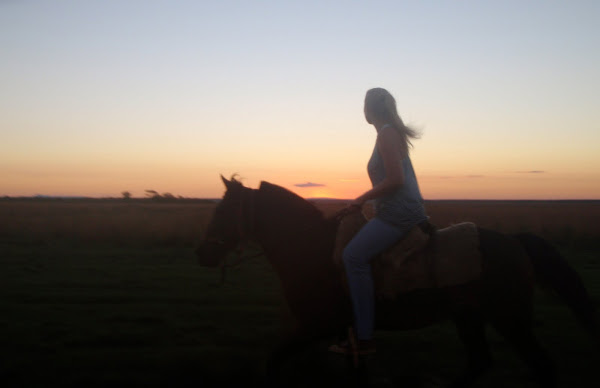November 7: From “The Paradox of Choice” by Barry Schwartz
"In the 1960s, psychologist Martin Seligman and his collaborators performed an experiment that involved teaching three different groups of animals to jump over a little hurdle from one side of a box to the other to escape or avoid an electric shock. One of the groups was given the task with no prior exposure to such experiments. A second group had already learned to make a different response, in a different setting, to escape from shock. Seligman and his coworkers expected, and found, that this second group would learn a bit more quickly that the first, reasoning that some of what they had learned in the first experiment might transfer to the second.
The third group of animals, also in a different setting, had been given a series of shocks that could not be escaped by any response.
Remarkably, this third group failed to learn at all. Indeed, many of them essentially had no chance to learn because they didn’t even try to escape from the shocks. These animals became quite passive, lying down and taking the shocks until the researchers mercifully ended the experiment.
Seligman and his colleagues suggest that the animals in this third group had learned from being exposed to inescapable shocks that nothing they did made a difference; that they were essentially helpless when it came to controlling their fate. Like the second group, they had also transferred to the hurdle-jumping situation lessons they had learned before -- in this case, learned helplessness.
Seligman’s discovery of learned helplessness has had a monumental impact in many different areas of psychology. Hundreds of studies leave no doubt that we can learn that we don’t have control. And when we do learn this, the consequences can be dire. Leraned helplessness can affect furture motivation to try. In can affect future ability to detect that you do have control in new situations.”
The scientists then sent in on of the group two animals to help the group three animals. At first, she was quite astonished that they were just sitting their being shocked away, while freedom was just over a small hurdle.
She made a big sweeping motion with her paws toward the hurdle, as if to say, “Jump! Jump already!” By this time they had already laid down, and they just shook their heads, as if to say, “It’s no use.”
And the Group 2 animal wondered why they wouldn´t want to escape the shocks. The Group 3 animal thought the Group 2 animal was quite odd, and that shocks were just part of life.
November 8: No, You Should Not Have Stayed Home
Before I joined the Peace Corps, I pictured the two years abroad as some kind of detour to the rest of my life, some kind of time out that I would take and then get right back on track, jump back in where I left off.
Now, it’s hard to remember that this is not my real life, that I’m in a foreign country. Sometimes it feels as easy as living. Other times when I wonder why it’s so damn hard, I have to remind myself that this is supposed to be the toughest job I’ll ever love.
Then the memory comes in a jolt that I’ll leave this place. My Guarani will become a party trick. I won’t have time to make Ao Po’i anymore. I won’t have a horse. Worst of all, Oscar will not always be right next door.
If I thought about all that too much, I’d go insane.
Between the jolts, I get too comfortable. I forget I’m a representative of the U.S. Government, a volunteer, 24/7 and just go on being Paulette, instead of Paulita. I don’t feel like trying to make more contacts. I don’t try to get out in the community more often. I don’t keep social norms in mind.
Saturday I was in bed reading one of my non-fiction books I’ve become obsessed with, perhaps seeking at least a book-learning understanding of society if not a real one. Sandra, my host sister, invited me to play volleyball. Though I wanted to stay on my butt, I said, No, I should go.
I walk, slump shouldered, to a bunch of crazy kids, mostly boys about 12, playing over a net tied between two twisted tree limbs sticking out of the ground. Most were barefoot.
It’s been a year since I touched a volleyball, so I spent the first few games embarrassing myself. The rotations were like a shame cycle, peaking at when I had to serve, and the ball went everywhere but over the net. The children have no problem expressing themselves, meaning they laughed their asses off at me.
I should have stayed home.
When we sat out, Sandra showed me a game played with the inside of a flower, with the little stems that have a head on them, trying to knock the other’s off.
We played another round of volley, and I finally remembered how to serve and everyone cheered, because when I can serve, I can serve, overhanded. I cheered up and began to notice all these photos around us: boys sitting in a doorstep. Two chickens, one after the other, walking up the steps of bricks left of a half-crumbled wall.
During the next break, I talked with this kid Pablo, who’s studying English. We talked almost all in English, with this other little kid just looking on. Pablo told me that he learns all his English from watching movies, every night.
We got up to play another game. The sun was gone, and the sky was blue with pink cotton candy. Pablo was first to serve. He held the ball up, and paused. He looked right at me and said in his English, “Stop this Mother F*ckers.” Then turned back and served.
Sunday, November 8, 2009
Subscribe to:
Post Comments (Atom)

No comments:
Post a Comment